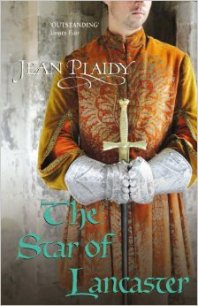The Follies of the King - Plaidy Jean (мир бесплатных книг .TXT) 📗
A pox on Lancaster! This day he could think of nothing but his grief for
Perrot.
The funeral had been costly. Never mind. He would pledge everything he
had for Perrot.
Walter was with him— Thank God for Walter who had ordered that four of
his bishops and fourteen abbots attend the ceremony. The barons stayed away, which was significant. They no longer thought it necessary to please the King, and Lancaster might consider it an act of defiance against himself of they attended the obsequies of a man in whose murder he had been the prime
instigator.
However the ceremony was an impressive one, and Gaveston was laid to
rest in the Church of the Dominicans at Langley.
The King wept openly, and it was said: ‘None can ever take the place in his heart which Gaveston held.’
???????
During the next few days it seemed as though God had turned his face
against the English. The weather was so bad that the crops failed which meant famine throughout the land and starvation for many. The price of wheat, beans and peas had gone up to twenty shillings a quarter, a price beyond most purses and due to the shortage, even the royal table could not always find supplies.
The country could have recovered in time from that first harvest but the
following one was equally bad. Corn was so scarce that the brewers were
forbidden to convert it into malt, so there was not only a shortage of food but of drink also.
All through the summer the rain fell in torrents; fields were under water, many villages were completely flooded so besides being out food many people were without homes. The crops were rotting in the fields and people were forced to kill horses and dogs for food.
Disease was rife. Many who did not die of starvation did so of mysterious
ailments and there was a growing discontent throughout the land.
Moreover, it was hardly to be expected that after the great victory of
Bannockburn the Scots would rest on their laurels. That energetic man, Robert the Bruce, consolidated his gains and made forays over the border coming as far south as Lancashire. The Welsh, seeing their opportunity, had risen under
Llewellyn Bren. Llewellyn had six stalwart sons and these seven men had soon taken the whole of Glamorganshire.
The Marcher Barons had gathered together and driven the Welsh back and
as a result Llewellyn Bren was captured and brought to the Tower. This was the one success since Bannockburn and was no credit to the King for it had been brought about by the might of the Marcher Barons, chief among them the
powerful Mortimers.
Edward Bruce, brother of Robert, had landed in Ireland. Edward Bruce was
an ambitious man; he was a great soldier but lacked the genius of his brother, though this did not prevent his desire to share the crown of Scotland. Wisely, Robert had decided that to be King of Ireland might satisfy Edward and now that the English had been so firmly routed was the time to make a bid for that crown.
It was disconcerting to know that Edward Bruce had landed in that
troublesome island and with the Earl of Moray taken possession of
Carrickfergus and been crowned King of Ireland.
It seemed there was no depth to which England could not fall.
The people, weary of famine and illogically blaming their rulers for that, were beginning to be disenchanted with Lancaster who seemed incapable of
helping them any more than the King had.
It was frequently said that had Great Edward been alive, he would have
found some way of righting their wrongs. The fact that Edward the Second
looked so much like his father made them more critical.
Beset by famine, disease and the knowledge that Robert the Bruce despised
them so much that he had penetrated far into the country, that the Welsh had dared raise a rebellion and that Ireland was in the hands of the Scots, they began to look round for a scapegoat.
The Queen sitting quietly at her tapestry with her women about her was not inwardly as serene as she appeared.
Young Edward was four years old. A sturdy child whose health gave no
cause for concern, he was long-legged, flaxen-haired, full of high spirits and devoted to his mother. Isabella had made sure of that. On this child rested her hopes. She was certain that the time would come when they could stand
together? perhaps against his father. She had thought that that day might be soon when Lancaster had taken the King’s power from him; she had admired
Lancaster, but now she was not so sure. He was not an energetic man; in fact he was inclined to be lazy. What was he doing about the famine and the disastrous incursions of the Scots in Northern England and Ireland?
Lancaster was not the man she needed and it would seem that the time was
not yet ripe. But she must remain watchful. She sat stitching one of her women said to another: ‘It is such a silly story. I am sure no one believed it.’
Isabella roused herself and wanted to know what this story
The woman was confused. ‘I scarcely like to say, my lady. It was clearly a madman?’
‘Nevertheless I wish to hear.’
‘My lady, it is so very foolish?’
‘I have said I wish to hear,’ retorted the Queen coldly.
Her women were afraid of Isabella. She had never been severe with them
and yet they were aware of a certain ruthlessness in her. They had often
admitted to each other that they would not care to displease the Queen. And they would shiver and then wonder why they felt this fear of her so strongly
Now the woman said quickly: ‘Just a bit of gossip, my lady. They were
talking to the King? it was nonsense.’
A faint colour showed itself under the Queen’s skin; her eyes glittered and the woman hurried on: ‘They said? on forgive me, my lady? it must have
been the words of a madman? they said that the king was a changeling? not
the true son of Great Edward. They said that one of his nurses dropped the Prince when he was a baby. He was killed and this maid being so terrified put another baby in his place.’
The Queen burst into loud laughter in which her women joined, relieved.
‘A ridiculous tale indeed! You are right to think so.’ She smiled at the
woman who had told the story. ‘Did you ever see one who more resembled his father than the King?’
‘No, my lady, never.’
‘I have heard it said that he is the image of what the old King was at his age.’
‘It is certainly so, my lady.’
‘That nurse was very clever, was she not? to find a baby who looked so
like the King?’
They laughed and, chattering, recalled other absurd bits of gossip they had heard from time to time.
But the Queen did not treat the matter as light-heartedly as she pretended to do. It was true it was a ridiculous story, but the fact that it had been invented in the first place and been passed round was an indication of how people’s minds were working.
They were growing disillusioned with the King. There must be an idea—
faint as yet— to dispossess him; which was why the notion that he was a
changeling would be allowed to flourish.
The people no longer admired him. They wanted a King like the first
Edward, a strong ruler, victorious in battle, one at the mention of whose name the enemy quailed. Robert the Bruce had never been greatly in awe of Edward the Second. What had he said? ‘I am more afraid of the spirit of Edward the First than the armies of Edward the Second. It was more difficult to get a square inch of land from the First Edward than it would be a kingdom from the
Second.’
Oh yes, they were beginning to despise the King. So the changeling story
was welcomed.
That night she went to Edward’s chamber and talked to him of the funeral of Piers Gaveston. She wanted to hear how impressive it was and how




